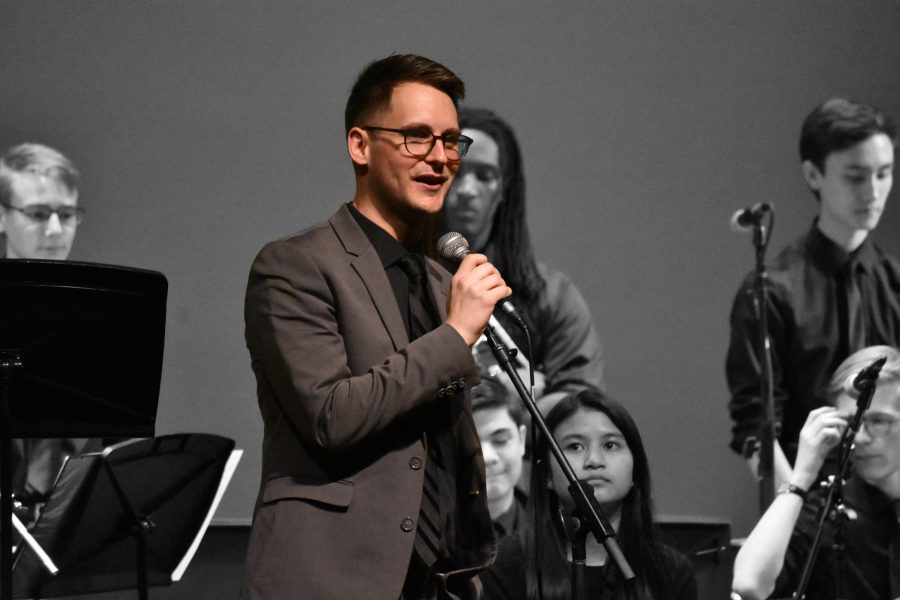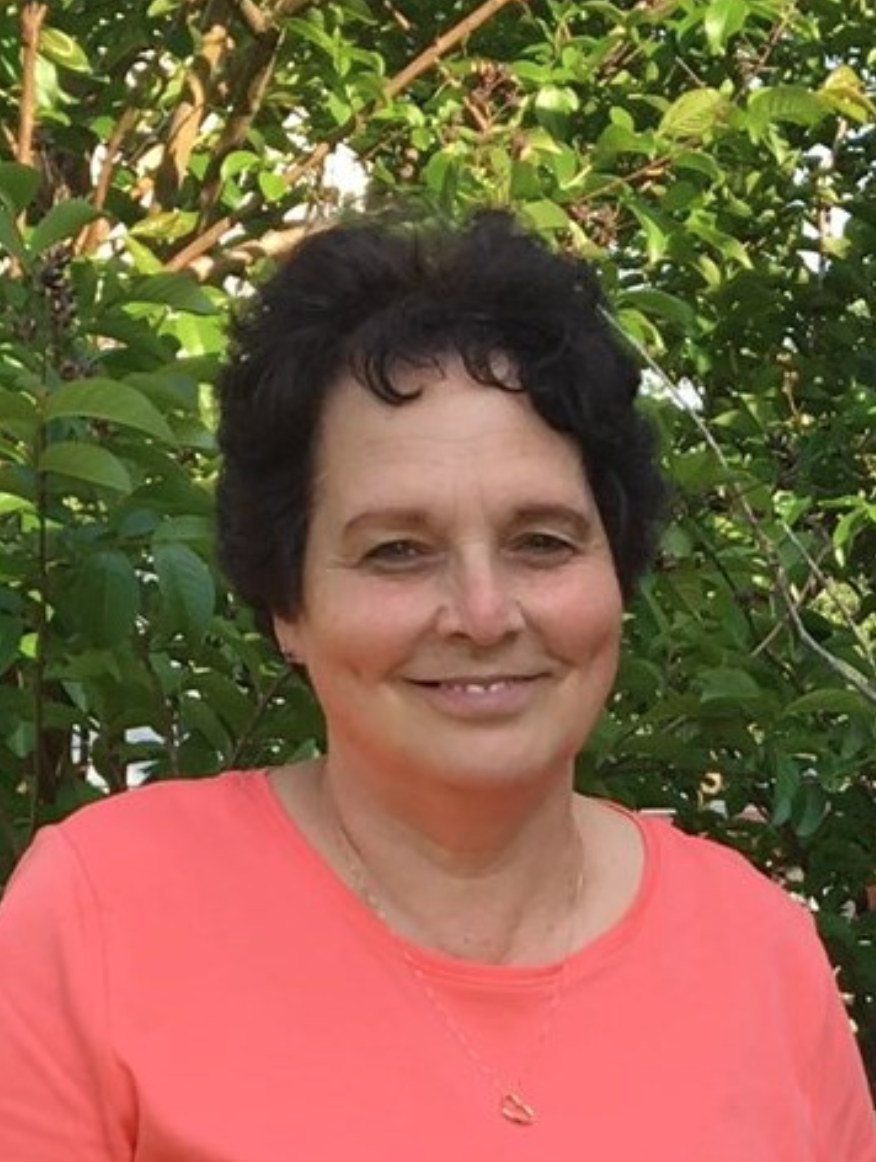Words: Celina Wong
Photos: Zach Grable
What was your life like eight years ago? Many of us were in elementary or middle school, when our biggest concern was who we were going to sit with at lunch. For teachers and parents, many of you were in the process of building your careers and families.
Eight years ago, David Matchim walked through the doors of Centennial High School and vowed to create a prestigious band program. Now, Matchim has been named Music & Arts 2018 Music Educator of the Year and has created one of the best wind ensembles in the entire country. He attributes the foundation of his success to the book, The Happiness Advantage, written by Shawn Achor. The book describes seven basic principles that readers can use to create a more positive outlook on their lives. Its purpose is to correct the idea that happiness leads to success, not that success leads to happiness.
Matchim stumbled upon this book during a rough time in his life when he needed guidance.
“I had a tough year where I was feeling particularly negative, and I was questioning whether or not I still wanted to be a music director,” Matchim stated. “I was searching for ways to change my outlook, or perception, on what I was experiencing. I ended up doing an internet search, and that’s when I came across The Happiness Advantage by Shawn Achor.”
The Happiness Advantage is based on the philosophy of positive psychology. It proves that people function and perform better when they are in a good place emotionally.
“It’s kind of like a car. When it’s well-tuned, it operates better,” Matchim illustrated. “For me, I needed to see that there was actual research done that shows that physiologically we do better, if we think positively. That’s what really sold me [on the book].”
The book has changed Matchim’s perspective on his life.
“What I like is that the book isn’t about being positive all the time. It recognizes that we’re [all] human,” Matchim explained. “The book really talks about living life with rose-tinted glasses, rather than with rose-colored glasses. It’s not about being naive and thinking that everything is going to be perfect all the time, but seeing the good things that are happening that we may have been blind to otherwise.”
Javeria Diaz-Ortiz, a four-year band student, struggled in her sophomore year and voiced to Matchim that she was considering quitting band.
“[Matchim] said, ‘Everything is fine. You can do whatever you need to make yourself comfortable, but I just want you to know that I want you in this band,’” Diaz-Ortiz recalled. “I will always remember that interaction because I feel like I can depend on Mr. Matchim. It really changed my opinion and perspective on him and I know I can go to him if I have any problems.”
Diaz-Ortiz is not the only one who has experienced the pressure that comes with a competitive band program. As a result, Matchim has found an approach that helps his students relieve some of their stress.
“I have recently had a number of teachers come up to me and say, ‘What is the magic trick?’ Some people who don’t know me think I run the program kind of like a dictator and that I’m really hard on people all the time,” Matchim said. “But, I don’t think that’s the case.”
For Matchim, the key to helping students achieve their goals is to be involved in the process.
“I can have high expectations, but I think the difference is that some people put the expectations on others, and don’t try help them achieve it,” he shared. “That’s the biggest thing. People have to feel that you’re on their side. If I set an expectation, I try to make sure I’m an active participant in getting people there.”
Similar to Diaz-Ortiz, Matchim faced a few obstacles where he too felt like he was not doing the best he could to succeed. He related this back to one of Achor’s principles, “Falling Up.” It discusses the idea that failure and suffering teaches us how to be happier and people are ultimately more successful because of it.
“I would say, probably four years into my career here at Centennial, I wasn’t meeting my own expectations about where I wanted the program to be. I got very discouraged because I thought I wasn’t doing a good enough job, as I was constantly looking ahead and I wasn’t looking at where we came from,” Matchim noted. “I think that for me, reading the book, and the whole “Falling Up” principle, made me realize that failure is okay, and it is a part of learning. That is something that a lot of people are really afraid of. After reading the book, I understood a little bit more that even though we are not meeting the expectation yet, we’re making progress there.”
One idea that Achor emphasizes in The Happiness Advantage is the idea of a support system. He thinks that “the most successful people invest in their friends, peers, and family members to propel themselves forward.”
Matchim applied a similar approach with his ensembles.
“The joy is that [the students] have relationships with each other, and not just me. Sometimes, they are honest with each other. I’ve heard students tell someone they need to work harder. I have also seen people say, ‘You’re doing a great job; keep doing what you’re doing. You sound amazing,’” Matchim added. “I think the community we have in the band program is why we are largely successful because they want to play well for each other. It’s not about me. It is more important to me that they feel like they have each other.”
Matchim takes the main idea of the book that happiness creates success and applies it to how he teaches his students and creates a safe environment within the band room.
“It’s really about community. I would like to see it happen in other places in the school too because we’re better with each other,” Matchim said. “I think there are a lot of insecurities to try to keep up, and at the end of the day, going back to the book, I think it is because everyone is feeling like they are going to be happier if they are more successful. But, every time they are successful, they move the goal post further away. [They] keep doing that and [they] aren’t ever happy. [They] have to be happy in [their] own shoes.”
Before Matchim established a sense of community within the band program, he used competition to fuel his students, as that was the broad stereotype of Centennial that was painted before he began to work there.
“I figured that I was going to use [competition] and they’re all going to try to be better than each other all the time, and that’s why the band is going to be good. We were good, but we weren’t great. My numbers in the band program were staying about the same,” Matchim explained. “Then, I realized that something that was missing, that what they needed in band was the sense of community. That’s when I shifted gears and a lot of that had to do with the book. I tried to get them to be supportive of each other, and not just better than the person next to them.”
Matchim has also seen the effects of this book in himself and others around him.
“If you want to do something that you are passionate about, you’re going to be successful in it. I think with the Shawn Achor book, the reason I am experiencing success is because I love what I do. Now that I am 35, I have a lot of people who are in pivotal places in their careers and I’m noticing that my friends that are nailing it —regardless of what field they are in— love [their jobs],” Matchim stated. “There are outliers. There are a lot of people who are successful and unhappy. But, the bulk of people who pick something that they love are doing that.”
Along with the book, the people of the community have helped Matchim win the award of Music Educator of the Year.
“What feels good about it is that these are community-nominated awards. There are a thousand plus people nominated for this, who are supported by people from their community, parents, graduates, administrators, other teachers in the county. Other people are recognizing what we’re doing,” Matchim explained. “What is cool is that the source of the award is that people are recognizing and appreciating the work that is happening. And I think that’s huge. If you love teaching, the way that I do, and if you love music, then you want to know that your community values you and values what you’re bringing to the table. That’s what feels really great about it.”
In an exclusive interview with The Wingspan, Achor expressed how he is moved by the work of Matchim, as he paved the path for thousands of students who have sat in his band classroom.
“I wanted to help the helpers by validating that their behavior and mindset really matter,” Achor said. “In a time when anxiety and depression are at historic highs in our schools, when you see champions like David Matchim, you realize that hope exists for positive education.”
As Matchim traces the foundation of his happiness and achievements back to the novel, Achor feels like the book has reached its purpose.
“If David was the only person who read The Happiness Advantage, I’d feel like the book was a success,” Achor said. “He took the words and made them come to life for the students and teachers in his life.”
With the title of 2018 Music & Arts Music Educator of the Year, Matchim has received recognition from those in other states who admire him and his band program.
“I think that’s cool for our students to know that there are other people, music teachers, and music kids who know about our program,” Matchim explained. “That’s more of an opportunity to feel thankful, and then people end up putting in more support. It’s just a nice cycle to be in. I hope it’s always this way. It may not always be this way, we’ll probably have highs and lows, but I think right now, this is a pretty cool place to be.”
th/jm/js/cm/nk/pb
This article is featured in the 2019 Senior Issue. To see the full issue, Click Here!
For more breaking news and photos, follow The Wingspan on Instagram and Twitter @CHSWingspan.






